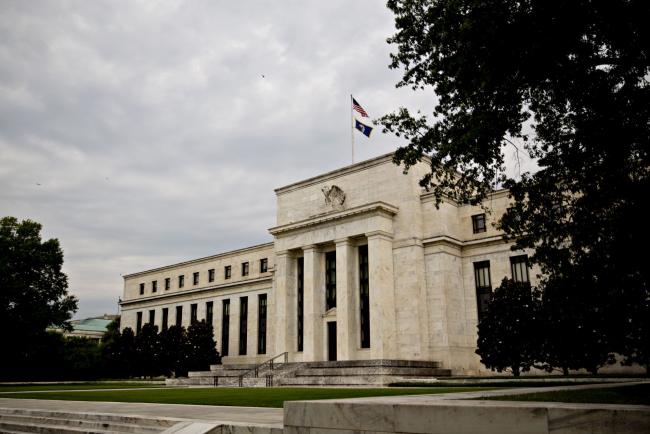(Bloomberg) -- Global central banks are approaching the end of the year with a collective shudder at the risky behavior that their low interest-rate policies are encouraging.
Policy makers from European Central Bank and the Federal Reserve are among those raising cautionary flags at potentially unsafe investing stoked by their efforts to flood economies with ultra-cheap money. Stock indexes from the U.S. to India are at records, and low sovereign bond yields have pushed funds into property seeking better returns.
The warnings are couched in measured language that doesn’t signal panic, but the combined message is one of growing anxiety, laced with the discomfort that central bankers can’t easily tighten policy either. The danger is that such risk-taking recreates a backdrop similar to that preceding the global financial crisis a decade ago.
“Markets have been complacent, but this is probably the outcome of low rates or negative rates,” Sergio Ermotti, chief executive officer of UBS Group AG, told Bloomberg TV last week at the New Economy Forum in Beijing. “The chances that one day or the other things are going to be out of sync is increasing.”
Historically-low interest rates are warping markets. In August, some $17 trillion of global investment-grade debt, around a third of the total, had negative yields. That means investors holding a bond to maturity may receive less at the end than they paid out at the beginning -- upturning financial wisdom that you should get compensated for lending money.
Despite central banks’ qualms about side effects, there’s little sign that they’ll do any more than issue warnings. In fact, their desperate efforts to boost inflation saw them unleash another round of monetary loosening this year.
“The Fed since September, the ECB as well, the BOJ, even the central bank of China is starting to provide some more easing,” Kevin Thozet, an investment strategist at Carmignac Gestion, told Bloomberg TV on Wednesday. That’s contributed to “a bull market of everything in 2019.”
The result is lower sovereign borrowing costs even in some of Europe’s riskier nations as investors seek out the few remaining places that offer a positive return. Ten-year yields in crisis-ridden Italy are barely above 1%.
In Switzerland, home of the world’s lowest interest rate, lenders have toughened standards on borrowing for residential investment. A number of other countries are similarly concerning, with Bloomberg Economics estimating this year that Canada and New Zealand are the most vulnerable to a correction given price-income and price-rent ratios are well above long-run averages.
The spate of recent financial stability assessments began Nov. 15 with the Fed, which warned that low rates could encourage riskier behavior such as eroding lending standards.
A prolonged period of low rates could also “spur reach-for-yield behavior, thereby increasing the vulnerability of the financial sector to subsequent shocks,” it said.
The Fed though appeared to take a more relaxed view of rising stock prices than in its last report in May. While equity prices remain high relative to corporate earnings, they are consistent with the low level of interest rates, it said.
The ECB -- whose own benchmark rate is below zero -- highlighted threats to investment funds, insurers and in some real-estate markets. It also had a warning that mispriced assets could face corrections in future.
The Riksbank chimed in too, saying it’s monitoring excessive risk-taking and its analysts have been looking at the danger of markets seizing up. The Swedish central bank plans to end negative rates next month having pioneered that policy with mixed results.
“We have done substantial stress testing on the liquidity side,” Governor Stefan Ingves told Bloomberg TV. “If the system stops, that’s where it starts first.”
At Germany’s Bundesbank, which has long warned of the dangers of too-loose policy, Vice President Claudia Buch says there’s an “underestimation of credit risk.”
“There’s some element of backward looking expectations” she said. “That means that risks going forward might be underestimated.”
While the alignment of the central banks is notable, they aren’t yet signaling outright dread. Fear hasn’t infected financial markets, and the global economy is still growing, after all.
That sanguine view is largely shared by David Solomon, CEO at Goldman Sachs Group Inc (NYSE:GS).
“The environment at the moment is relatively benign from an economic perspective,” he told Bloomberg TV in Beijing.“The world is growing at 3-3.5% -- that’s not bad. Everybody is looking for what’s wrong. There are a lot of things that are going well.”
Still, both he and his rival at Standard Chartered (LON:STAN) Plc, CEO Bill Winters, described the Fed’s recent difficulty in calming the repo market as instructive.
“We haven’t really had a test of the market, post-the financial crisis,” Winters said. “I’m concerned that there’s a little bit more fragility in there than we’re aware.”
(Updates with analyst quote in seventh paragraph.)
